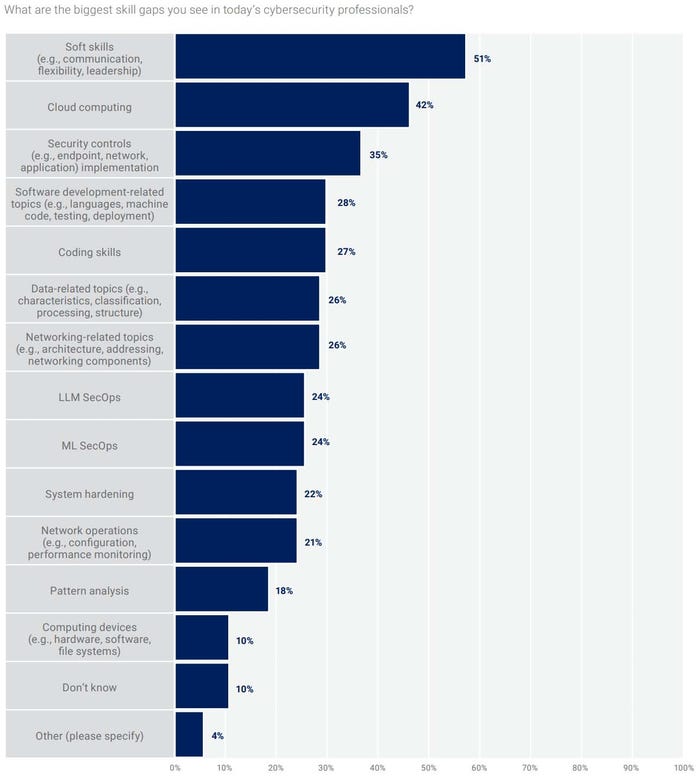The demand for cybersecurity professionals with skills in machine learning and large language models is on the rise as organizations recognize the importance of assessing the risks posed by artificial language to their assets. According to ISACA’s 2024 State of Cybersecurity report, LLM SecOps and ML SecOps are identified as the top skill gaps in cybersecurity by 24% of respondents. Soft skills like communication, flexibility, and leadership are also in high demand, with 51% of respondents citing them as essential.
Wanted: LLM, ML Skills
The demand for LLM SecOps and ML SecOps skills is increasing rapidly, reflecting the widespread adoption of these technologies in cybersecurity.
MLSecOps involves integrating security practices into the development and deployment of machine learning systems. It encompasses securing training data, preventing bias, and applying standard security measures to ML systems.
LLM SecOps focuses on securing the lifecycle of large language models, addressing ethical considerations, data preparation, and monitoring post-deployment activities.
Security professionals can enhance their skills through resources like Benjamin Kereopa-Yorke’s GitHub repository and OWASP’s Machine Learning Security Top Ten list.
In addition to technical skills, organizations seek expertise in cloud computing, security controls implementation, and software development to address the evolving cybersecurity landscape.
Cybersecurity professionals with cloud computing skills are in high demand due to the shift towards cloud-based operations, requiring specialized knowledge for securing cloud assets.
The skills gap in software development pertains to testing and deployment processes, highlighting the challenges organizations face in securing software pipelines and integrations.




